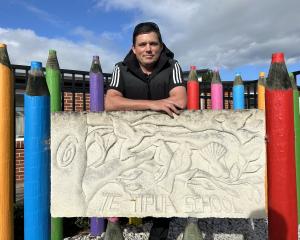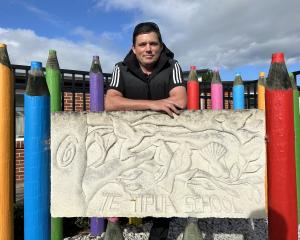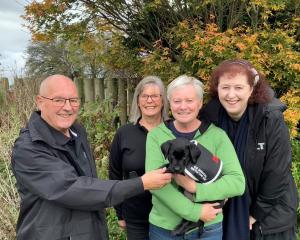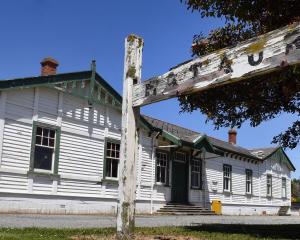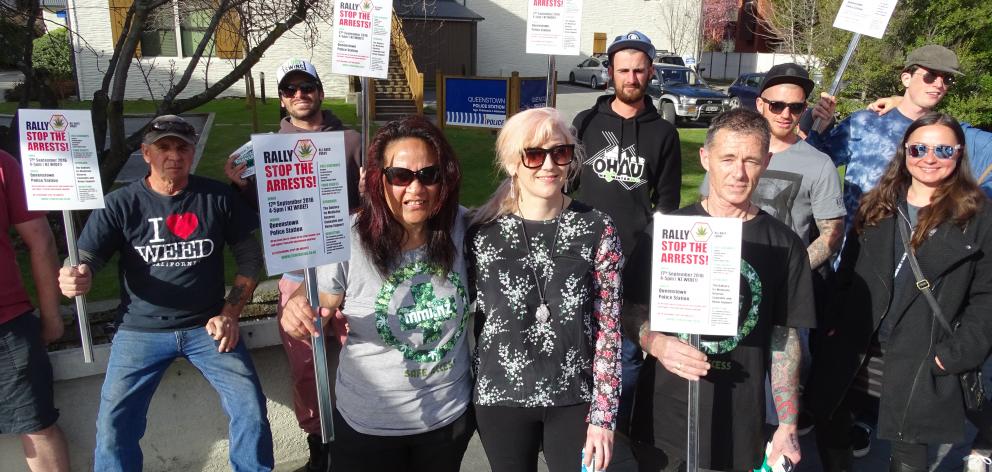
Recreational and medical users joined with human rights activists to call for an end to what they see as police harassment.
Sixteen people eventually "sparked up" outside the Queenstown Police Station on Saturday, but not before they were warned by police for obstructing the footpath.
The group gathered on Camp St at 4pm and had invited police to attend before 4.19pm, intending to light up one minute later, along with people attending similar rallies in 26 centres across New Zealand, all urging the decriminalisation of cannabis.
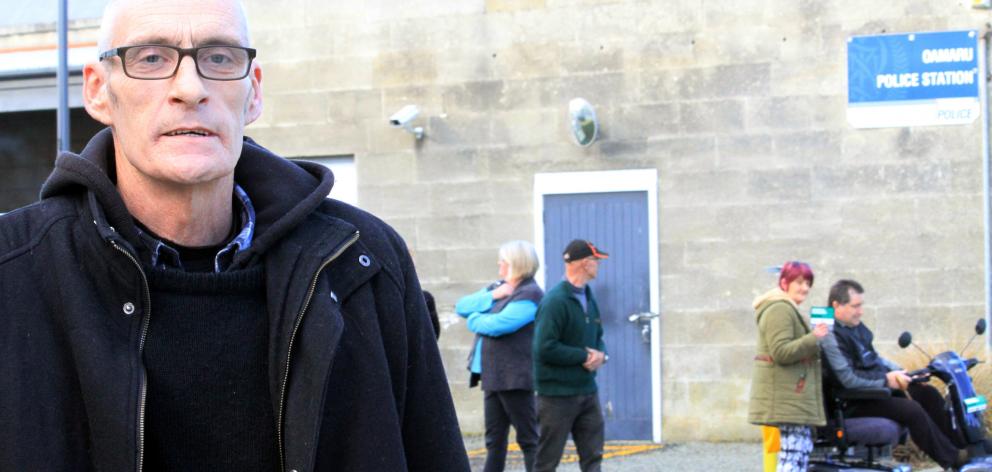
Rally organiser Te Aroha Knox was spoken to by Insp Jensen for several minutes, before informing those gathered they needed to move from the footpath and stand along the fence line, bordering the police station because they were obstructing the footpath.
Police spent several minutes speaking to the group before returning to the police station — after which the group exercised their democratic right to participate in the protest.
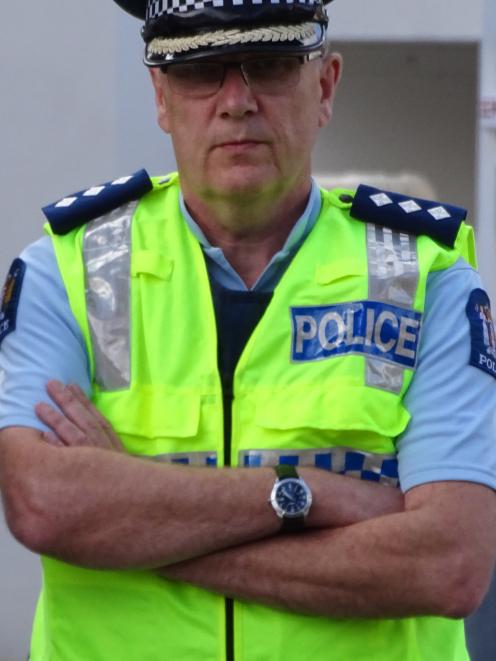
Participant Helen Ferguson attempted to deliver a hand-written letter to the police about her thoughts on cannabis users being arrested but the officers "refused to take it".
"They said: ‘We don’t want to hear it’."
Ms Ferguson said it was baffling that cannabis was still illegal, particularly given the harm to society other substances that were legal caused.
"Some people like to go home and have a glass of wine in the evening and some people like to have a joint.
"Alcohol is, by far, the most harmful drug of the two."
Those at the rally signed a petition to legalise medical cannabis — however, if successful it would be the first step to legalising all cannabis, presently classified as a class C-controlled drug, she said.
The protest ended without incident or arrest at 4.45pm.
Meanwhile, police were not present at the Oamaru rally, where 15 people arrived to smoke cannabis cigarettes in the police station’s car park.
Organiser Michael Doran (46), a photographer, said he was "rapt" with the size of the crowd, having not anticipated high numbers of people.
"People are scared of getting arrested and there’s a certain amount of stigma attached to it."
The stigma associated with the drug’s use would change if cannabis were legalised, but Mr Doran, who has smoked cannabis for 34 years, said the use of cannabis was a part of New Zealand culture.
Legalising the drug would help to keep youth away from "dodgy tinny houses" where they could be at risk, would provide an alternative to New Zealand’s heavy drinking culture, which led to violence and alcohol-related deaths, including "losing family and friends to car accidents", and the possibility for medicinal cannabis use would help to reduce doctors’ current reliance on prescribing opioids.
Self-employed contractor Alan Bromby (51), of Oamaru, said the amount of cannabis he smoked varied, but he would smoke "a joint or two after work".
He said cannabis-related arrests were "turning our public into criminals".
First arrested in 1983, Mr Bromby’s life had been "screwed" by his criminal convictions, he had "40-plus" cannabis-related convictions and had spent "all up" about four years in jail.
The Oamaru rally also ended without incident.
The New Zealand Police national media team said Insp Jensen would not be making any comment on the rallies and issued a national media statement.
It said the police were aware of the action and were appropriately resourced nationally to deal with "any issues that may arise".
"Police respects people’s right to lawful protest, and our focus will be around peaceful protest and responding appropriately to any issues regarding disorder or public safety.
"Police will not be offering comment on the case being advocated by the protesters.
"We can say that the role of police is to enforce the law and the police approach to cannabis has not changed."



